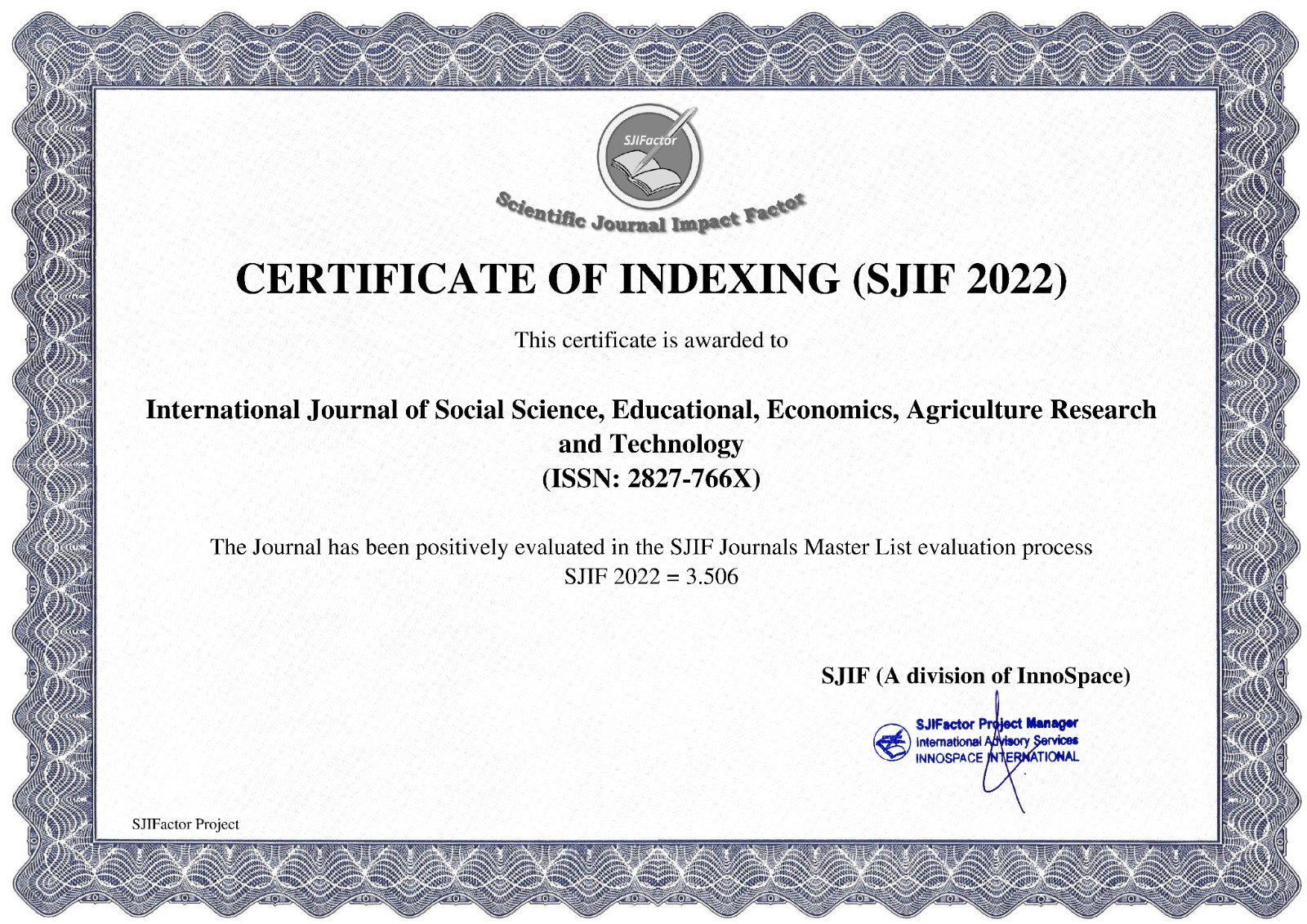EAST-WEST DICHOTOMY: A STUDY OF ORHAN PAMUK’S NOVELSILENT HOUSE
Main Article Content
Umar Mushtaq
Geographically and linguistically, Turkey has been at the core of the debate surrounding the conflict between East and the West and subsequently between the West and the Islamic world. Orhan Pamuk characterises Turkey as a "JanusNation" which within itself accommodated generational contradictions: between East and West, secularism and religion, and modernism and tradition. Pamuk does not choose one over the other but argues that the country must incorporate all of these contradictions.Orhan Pamuk's literary works are frequently characterised by the East-West conflicts leading to a sort of confusion or loss of personal identity. In the press announcement made on Orhan Pamuk's receipt of the Nobel Prize in Literature in 2006, the Swedish Academy lauded Pamuk as a novelist "who in the quest for the melancholic soul of his native city has discovered new symbols for the clash and interlacing of cultures" (The Nobel Prize in Literature 2006). The clash between two dissimilar cultures East and West, and the phenomena of history and modernity and love and hate make the kernel of Pamuk's literary works.The article attempts to illustrate that the current world has experienced the transition from one stage to another; nonetheless, the dichotomy between the East and the West is still pervasive in the modern world. The East-West dichotomy has multiple implications in different disciplines, including sociology, geography, history, theology, and literary studies. Regardless of the differences in its practices, it continues to symbolise the historical separation or polarization between the East and the West, which still exists in the contemporary world. In this context, Orhan Pamuk have been chosen to investigate the scope and depth of the conflict between two cultures and ideologies.
-Berk, Ozlem.“Translating the West: The position of translated western literature within the Turkish Literary Polysystem”.Review of Literatures of the European Union, vol. 4, 2006.
- Farnsworth, E. Bridging two worlds.The News Hour, MacNeil/Lehrer Productions, 1–6, 2002.
- Huntington, S. P. The clash of civilizations?. Foreign Affairs, Summer, 1993.
- Nobel Prize Official Website.―The Nobel Prize in Literature Orhan Pamuk Biographical. N.p., 2006. Print.
- Pagden, A. Worlds at war: The 2,500-year struggle between East and West. New York: Random House. 2008
- Pamuk, Orhan. Silent House. Trans. Robert Finn, New Delhi: Penguin Group, 2013. Print.
- Said, E. Orientalism.Vintage Books. 2001
- Toffler, A. and Toffler, H. War and anti-war survival at the dawn of the 21st century. U.K: Little, Brown and Company. 1994
- Yashveer. Orhan Pamuk: Novelist of Civilizational Encounters. Chandigarh,
Haryana: Arun Publishing House, 2015. Print.






















